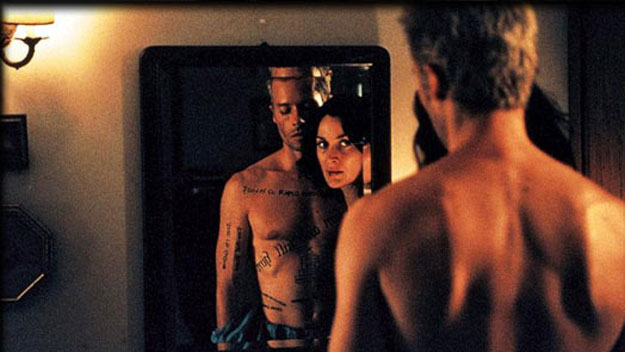For All Mankind does what many movies attempt to do, but
few as successfully: Take the viewer on one of the greatest adventures of all
time, in under two hours. It is a road movie without a road, a travelogue with no
walking.
It is a master of editing. This film has taken the footage of a number of Apollo missions and created a single hour and twenty minute adventure with them, connected with interviews with astronauts, music from Brian Eno and the sounds of the time. This gives us a feeling of having been on this trip ourselves, a sense of what it means to leave our gravity and go to the most alien landscape humanity has ever touched.
There are some unique, perhaps even strange, but certainly extreme
photos: The earth from afar, one of the most positive but powerful explosions
on the earth, the desert of the moon, earthrise, the blackness of space. Few have seen these images with their naked
eye and we have the opportunity to share it here.
These are the films that inspired Dark Side of the Moon, and
Space Oddity. There is a depth and a
majesty to them that must be expressed slowly, carefully but with deep
passion. As often as the astronauts may
jest, they and we all know that this exploration is the serious business of
mankind. The weariness and steadfastness
of the staff at Huston really shows the intensity and stress of what is
involved. Every button pressed has a
sense of history, of enormity. And so it
should. There is a drama here that
cannot be acted, for it was lived.
The landing on the moon, the touch of a human shoe on truly
alien soil—was it real? Many claim it
was not, that the films were created in a studio, perhaps by Kubrick. But looking at them again, hearing the
commentary, seeing the shadows, glimpsing the shadow of the Eagle on the
surface of the moon… but most of all the beating of my heart and the excitement
as I watch that final leap—it is real.
It must be. I know it in my heart
of hearts. As impossible as it might
seem that such a modern scientific miracle might occur, I truly, humbly
believe. I can do no other.
Why go to the moon?
There were certainly political reasons, but just as many economic
drawbacks. In the end, it cannot be expressed
better: “Man must explore.” There will always be political excuses to explore,
or economic reasons. But humanity’s ‘satiable
curiosity, the need to see what has never been seen, to step where no one has
ever stepped, that is one of humanity’s deepest destinies.
The drive that causes the two year old to strike out on his
own and walk past the corner onto the asphalt.
Perhaps his parent considers it too difficult, insignificant, and simply
dangerous for him to attempt. But he
must do it. His independence demands it,
and his love of the new demands it.
It is this same self-serving curiosity that created the
hadron collider, that caused men to stand at the South Pole, that causes James
Cameron to explore the deepest ocean. It
is the desire to find knowledge, to discover beauty, to find the surprise that
no one expected. We must do this, not just for personal
accomplishment, not just for glory, but for the benefit of all, although we
ourselves may not know what that benefit will be.






















